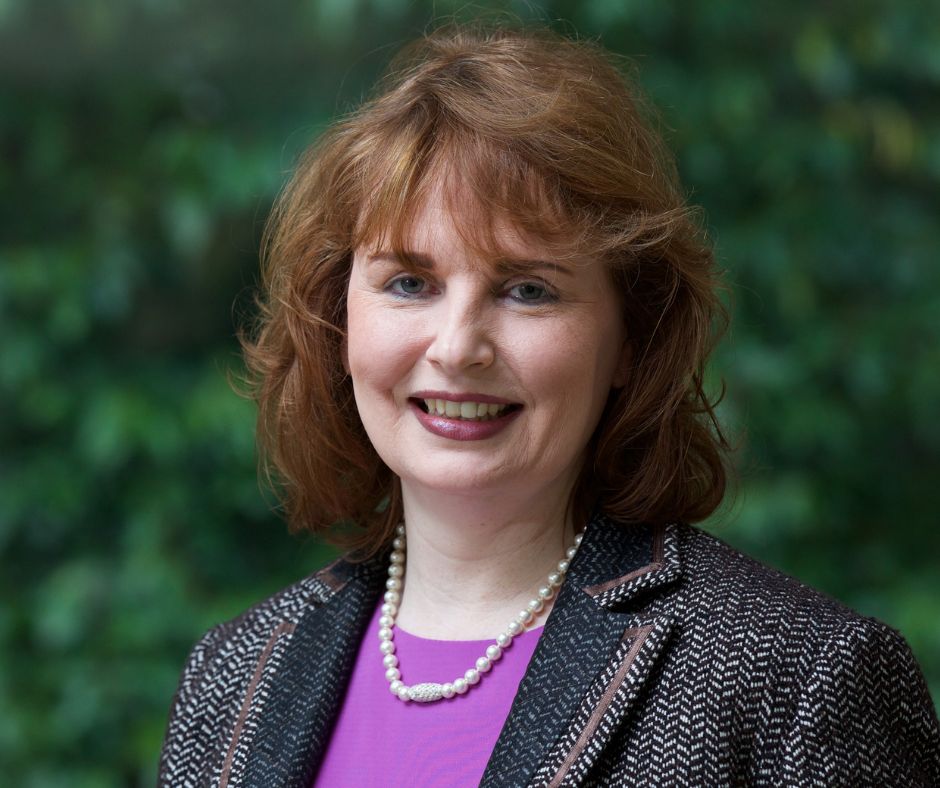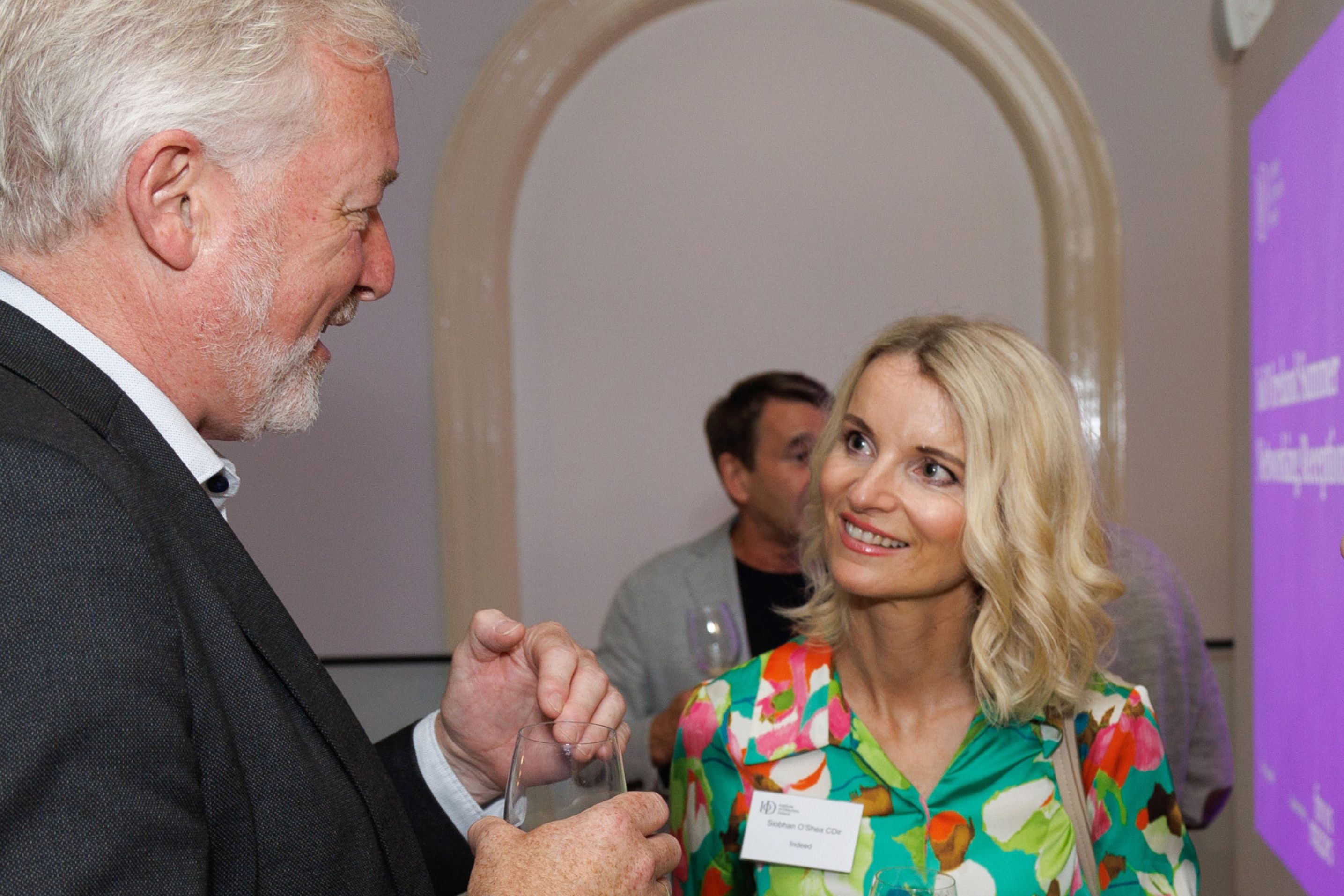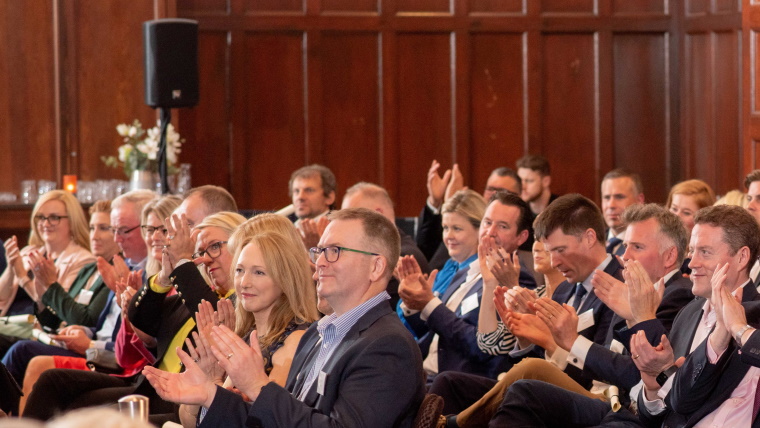
Jacinta Kelly CDir
Principal, Firm Thinking
Jacinta Kelly CDir is a strategy consultant and Principal of Firm Thinking. With over 25 years of international experience across various industries, including logistics, telecoms, industrial, and non-profit, she helps businesses develop strategies, strengthen governance, and drive innovation.
Tell us more about your background
I am a strategy consultant with over 25 years of international experience across sectors such as sciences, logistics, telecoms, industrial, and non-profit. As the Principal of Firm Thinking, I partner with businesses and their leadership teams to develop strategies, strengthen governance, and drive business model innovation.
Before founding Firm Thinking, I held senior roles at Ericsson AB, VWR International (Avantor), Exel Logistics (Deutsche Post), and P&O Group (Maersk). In these roles, I led market expansion initiatives, product development and launches, corporate account contract negotiations, and cross-border business transformations across global markets. My experience spans corporate strategy, operational leadership, and commercial development, giving me a deep understanding of how organizations scale, compete, and adapt to change.
I am also an Accredited Chartered Director. I completed the IoD Ireland Chartered Director Programme in 2023, gaining a Certificate and Diploma in Company Direction. I serve on the Board of Multiple Sclerosis Ireland, supporting its mission to improve the lives of those affected by MS. I hold an MBA with Distinction, along with advanced qualifications in corporate governance, financial management, and executive coaching.
What is the one characteristic that you believe every leader should possess?
Curiosity. No leader has all the answers, and the best ones don’t pretend to. They seek diverse perspectives, challenge assumptions, and keep learning. Markets shift, industries get disrupted, and what worked yesterday won’t necessarily work tomorrow. We’ve seen it time and again - companies that question the status quo thrive, while those that don’t fade into irrelevance. Kodak ignored digital. Blockbuster dismissed streaming. Leaders like Steve Jobs and Jeff Bezos were relentless in going deeper, questioning everything, and uncovering what others missed. That mindset in my view keeps businesses agile and relevant, no matter how fast the landscape changes.
Can you share a pivotal moment in your career that significantly shaped your approach to strategy consulting?
Leaving corporate to start my consultancy was a defining shift. I went from an established brand with deep resources to no brand equity, no safety net - just a drive to find my niche and prove my value in a space dominated by the large consultancy firms. It reinforced the importance of strategic focus - being clear on strengths, defining a competitive edge, and knowing where to play and how to win. I apply the same approach with clients, helping them define what sets them apart, refine their positioning, and focus on high-impact opportunities. Strategy for me isn’t about doing everything – it’s about deliberate choices, owning your space and executing with precision.
What aspects of your work with public and private sector clients do you find most rewarding?
The sheer diversity of challenges I work on is incredibly rewarding. Whether supporting a tech company seeking investment, a logistics firm expanding internationally, or a political party shaping its long-term strategy, the core challenges remain the same - navigating uncertainty, clarifying direction, aligning stakeholders, and ensuring execution happens at pace. What’s most satisfying is seeing strategy translate into real progress. It’s not just about developing plans - it’s about helping leadership teams make confident decisions, secure buy-in with stakeholders, and build momentum. The real reward comes when a strategy moves beyond discussion and becomes a driver of measurable impact.
How has your role at Firm Thinking Strategy Consultants influenced your strategies in business model innovation and go-to-market development?
Many businesses focus on growth but fail to assess whether their business model is fit for the future. I help clients challenge assumptions about where value is created, how customers engage with their offering, and whether they have the right products, processes, and people to sustain growth. At Firm Thinking, I work with leadership teams to explore market positioning, strategic options, and potential ecosystem partnerships. Through stakeholder engagement and leadership workshops, we stress-test strategic choices to ensure they are scalable, resilient, and aligned with long-term success.
How has being a member of IoD Ireland supported your role as a director and business leader?
Governance is constantly evolving, and staying ahead of best practices is essential. IoD Ireland provides a framework for ‘what good looks like’ when it comes to board effectiveness, governance structures and strategic oversight. Being part of this network allows me to benchmark against high standards, stay informed on emerging trends, and engage with experienced directors. It has reinforced the importance of practical, well-structured governance that fosters transparency, accountability, and strong decision-making. These insights are invaluable when working with leadership teams to enhance board effectiveness, navigate risk, and align governance with long-term business strategy.
What do you value most about being an Accredited Chartered Director and a member of IoD Ireland?
Completing the Chartered Director Programme was a personal milestone - it had been many years since I sat an exam, and going back into a structured learning environment was both challenging and rewarding. Beyond the accreditation itself, the programme reinforced the practical application of governance, risk, and board dynamics, adding depth to how I approach strategy and leadership advisory work. Staying informed on best practice and opportunities for continuous learning and development are essential in governance. As a member of IoD Ireland, I value access to expert-led training, webinars, and events that keep me informed on emerging best practices while providing a strong network of experienced directors.
How has your experience on the Board of Directors at Multiple Sclerosis Ireland enhanced your perspective on leadership and community service?
Serving on a non-profit board has been a powerful lesson in leadership and impact. In the corporate world, success is often measured in growth and margins, but in the non-profit sector, success is measured by impact and delivering vital services that improves lives. MS Ireland provides essential respite care, physiotherapy, and community supports to those living with MS, making governance about more than oversight - it’s about ensuring resources are used effectively to serve real needs. Non-profits face the same governance challenges as businesses - resource constraints, risk management, and strategic direction - but with the added responsibility of public trust. Leading in this space has strengthened my perspective on stakeholder engagement, accountability, and how leadership must balance strategy with social responsibility.
What traits are essential for an effective modern board?
In my experience it boils down to four elements:
- Strategic thinking – boards should challenge and refine strategy, not just oversee it.
- Diversity of thought – bringing together different perspectives leads to better decisions.
- Data-driven oversight – having timely, relevant, and external market intelligence to avoid tunnel vision.
- Accountability & courage – a strong board isn’t afraid to ask tough questions and hold leadership accountable.
What advice would you offer to new or aspiring directors in Ireland?
- Stay curious and ask the right questions. A good director doesn’t need all the answers - but they must be able to spot risks, challenge assumptions, and stress-test strategy.
- Stay ahead of change. AI, digital transformation, ESG and geopolitical risk are now governance priorities - directors must be lifelong learners.
- Understand that governance is about influence and oversight, not control. Boards should guide and challenge, not micromanage.
- Get a mix of board experience. Serving on corporate, non-profit, and advisory boards broadens your perspective and strengthens governance expertise.

